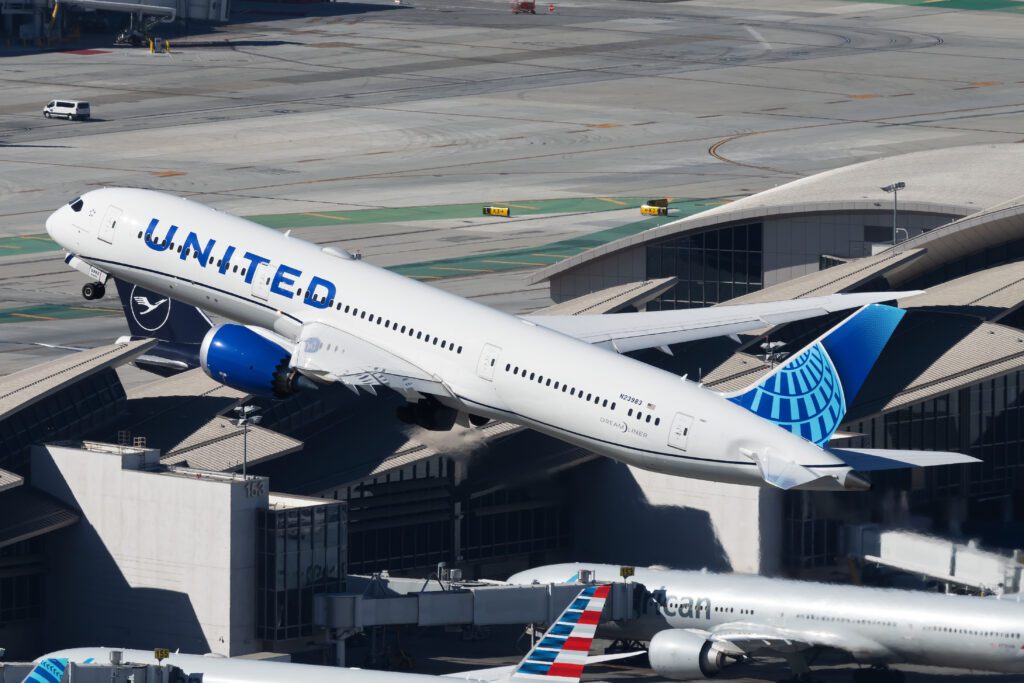
[ad_1]

Skift Take
As Western carriers continue to pull out of China due to capacity restrictions and the closure of Russian airspace, United relaunched its nonstop service from Los Angeles to Shanghai.
Meghna Maharishi
United Airlines restored its Los Angeles to Shanghai nonstop service on Thursday, becoming the only U.S. carrier to fly the route.
The carrier first announced in March that it would relaunch its LAX-Shanghai route after scrapping the flights in 2020. Delta Air Lines discontinued its LAX to Shanghai service in May due to a lack of demand and capacity restrictions.
Currently, United also flies to Beijing and Shanghai from its hub at San Francisco International Airport. United and Shanghai-based China Eastern are the only two carriers offering nonstop flights to the Chinese city, according to schedules from Cirium Diio.
Western Carriers Exit China
United’s latest route to China comes as many Western carriers have been scaling back their China service. The Chinese government imposed strict limits on access to its market since the pandemic.
Virgin Atlantic axed its London to Shanghai flights in July, citing “significant complexities and challenges.” The route became too costly due to the longer flight times, which have been caused by the closure of Russian airspace to U.S. and European airlines. As a result, flights to China have become longer and more expensive to customers, making them less appealing.
British Airways announced August 8 that it would halt flights to Beijing until October 25. However, the carrier said it would continue operating its routes to Shanghai and Hong Kong. Lufthansa also lowered its outlook for 2024 partly due to weaknesses in the Chinese market.
Australian carrier Qantas pulled out of Shanghai because of soft demand and a failed commercial partnership with China Eastern. Qantas CEO Cam Wallace told Skift in June that exiting China “was the right call.”
China’s Competitive Edge
In the U.S., airlines have been lobbying the federal government to pause the expansion of international flights to China, citing “anti-competitive policies of the Chinese government.”
Pre-pandemic, airlines could operate up to 150 daily flights between the U.S. and China. But, at the start of the pandemic, both countries imposed limits on the number of flights as geopolitical tensions rose. Coupled with the restrictions on Russian airspace caused by the Ukraine-Russia war, U.S. carriers haven’t been able to compete with Chinese ones on routes to China.
Since then, U.S.-China flights have been slow to rebound. United has described the current environment as the “new normal,” according to Bloomberg.
However, Chinese carriers have been able to restore their international networks close to 2019 levels. According to Skift’s July Travel Health Index, non-Chinese carriers’ international seat capacity is down 42% compared to 2019 whereas Chinese carriers are down only 9%.
In particular, Chinese airlines have significantly expanded operations in Europe since summer 2023. The number of scheduled flights to Europe increased 74%, surpassing summer 2019 capacity.
Airlines Sector Stock Index Performance Year-to-Date
What am I looking at? The performance of airline sector stocks within the ST200. The index includes companies publicly traded across global markets including network carriers, low-cost carriers, and other related companies.
The Skift Travel 200 (ST200) combines the financial performance of nearly 200 travel companies worth more than a trillion dollars into a single number. See more airlines sector financial performance.
Read the full methodology behind the Skift Travel 200.
[ad_2]